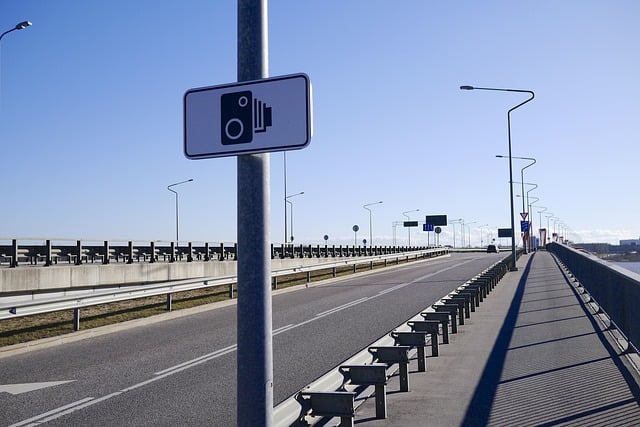Do speed cameras help reduce accidents and make our roads safer? Or do speed cameras merely raise revenue whilst failing to reduce fatalities?
If exceeding the speed limit increases the risk of fatal and serious accidents should we not seek to enforce speed limits? Which is more important the freedom to drive (and speed) or the freedom to use a road with a minimal risk of accident.
Advantages of Speed Cameras
Speed Cameras Raise Revenue
Speed cameras raise revenue which can be used to offset other taxes. If you stick to the speed limits you will never pay this type of tax. However, if you break the speed limit, you will have to pay this optional tax. Therefore, good drivers in effect, get a lower tax burden. This is the best type of tax because it only penalises those who cause the problems – of excess speeding. People complain that speed cameras are just another tax, but, that is not a problem.
Makes pedestrians/cyclists feel safe
Speed cameras often come through local public pressure. Local residents wish to reduce the noise and fear factor of speeding cars therefore, they welcome speed cameras. Lower speeds make it more pleasant to live by busy roads. As a cyclist, it can be scary when cars do 60mph on bendy rural roads, slight misjudgement and you know it is the pedestrian and cyclist who will come off worse. Motorists can feel safe in their super strong cars, but not all road users have that protection.
Reduced risk of accident
If we break the speed limit there is a greater chance of being involved in an accident. Since, at least, 2,000 people per year die on British roads; we should take all possible steps to reduce the number of fatalities. As well as the loss of life behind every accident and fatality lies an enormous economic cost. – loss of earning, hospital treatment e.t.c. The economic cost of driving slower is quite minimal. True some journeys may take a little longer, but, generally speaking, the cost is limited
Increased pollution
This applies, particularly to motorway driving. When we drive at higher speeds engines become more inefficient increasing carbon emissions. Speed cameras can be used to reduce speed limits and reduce pollution in built-up areas. For example, when the M4 reaches outer London, the speed limit is reduced from 70mph to 60mph – specifically to improve air quality.
Accident blackspots. Speed camera can be particularly effectively used on bendy rural roads, which have the highest fatality rate per passenger-km for any road.
According to a study by LSE, speed cameras show an observable reduction in traffic accidents and fatalities.
From 1992 to 2016, speed cameras reduced accidents by between 17 to 39 per cent and fatalities by between 58 to 68 per cent within 500 metres of the cameras. (LSE, October 2017
Reasons to Abolish Speed Cameras
- It is argued that speed cameras are ineffective in reducing accidents because people only slow down for the camera, but, then speed up when they have passed it.
- Some argue police forces uses speed cameras as a revenue-raising mechanism
- It is argued people may spend time looking up for cameras rather than the car in front.
- Invasion of privacy. Speed cameras involve taking photos of drivers at regular intervals. Some people prefer the freedom to drive what they think is appropriate.
- Evidence that speed cameras reduce accidents is not conclusive. A study by the RAC found that at 21 sites which installed cameras, accident rates went up. However, this has to be put in context, that it was 21 sites out of 551. 530 sites either showed no discernable change or went down. (RAC report)
- A suggestion that speed cameras can lead to more accidents away from where they are installed. Tang argues speed cameras do reduce accidents in their near vicinity, but there is some ‘suggestive evidence’ they lead to more accidents away from camera.
“However, these effects are highly localised around the camera and dissipate over distance, and there is suggestive evidence of more collisions away from the camera, illustrating the possible limitations associated with fixed speed cameras.” Tang, SERC discussion paper 0221
- On the M25 with many speed cameras, the regular car uses like to speed up in between speed cameras so there is not a constant speed but variable.
- One solution to this is to make greater use of average speed cameras.
Speed Cameras on Motorways
Motorways are statistically the safest form of transport. A speed limit of 70mph enforced by speed cameras may seem unnecessary most motorway drivers exceed this. There may be a case for raising the motorway driving speed from 70 to 80mph. But, why not have random speed camera’s to catch people doing over 90mph?
Conclusion
In 20 years of driving I have set off two-speed cameras by a small margin. On the one hand, it is irritating, but on the other hand, I want to drive on safe roads. Road traffic accidents are one of the biggest killers for young men, enforcing speed limits is a good thing. On both times, I went on a ‘speed awareness course’ which makes you think about whether speeding is worth it. At the end of the day, speeding is not worth it. The benefits are fractionally small, and the costs potentially devastating. Also, as an economist, I just see it as a form of tax. I paid £90 for the course (twice) over a 20 year period – a rate of £9 a year.
see also:

